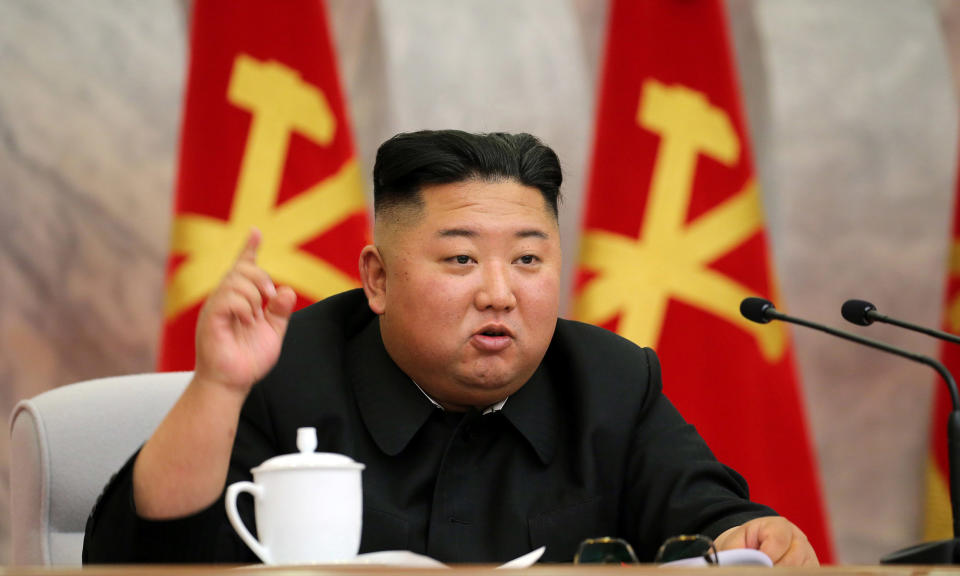Two years after key Trump-Kim handshake, North Korea says backs away from U.S.
North Korea said it was pulling away from the relationship with the U.S. two years after a historic handshake between President Donald Trump and the North Korean leader, Kim Jong Un, in Singapore, saying there had been no actual improvement in ties.
"Never again will we provide the U.S. chief executive with another package to be used for achievements without receiving any returns," North Korea's Foreign Minister Ri Son Gwon said on state-run KCNA.
"Nothing is more hypocritical than an empty promise."
Trump became the first sitting U.S. president to meet with a leader of North Korea in June 2018, and later took an unprecedented step onto North Korean soil in 2019 — with the aim of denuclearization of the Korean Peninsula.
The two men made history and headlines when they met in Singapore, after months of trading inflammatory barbs, with Trump promising "fire and fury" towards the "little rocket man." Kim, meanwhile, said he would "tame the mentally deranged U.S. dotard with fire."
The meeting led to a joint statement at the end of the Singapore summit, which laid out aims to stabilize the region and commit to denuclearization and the repatriation of prisoners. But political experts say little progress has been made by either side, while North Korea continues to build nuclear capabilities.
Relations improved following the Singapore summit in 2018 but Ri said hope had "shifted into despair" and any optimism for peace on the Korean peninsula had "faded away into a dark nightmare."
"The question is whether there will be a need to keep holding hands shaken in Singapore, as we see that there is nothing of factual improvement to be made in the DPRK-U.S. relations," Ri said, referring to the Democratic People's Republic of Korea, North Korea's official name.
Ri said Washington remained a long-term threat to the secretive state and its people and that the country would build up "reliable military forces" to counter any U.S. threats.
"The U.S. professes to be an advocate for improved relations ... but in fact, it is hell-bent on only exacerbating the situation," he added.
The U.S. State Department and the White House were not immediately available for comment on the latest North Korean statements.
But on Thursday, a U.S. State Department spokesperson told South Korea's Yonhap news agency that the U.S. remained committed to dialogue with North Korea, and was open to a "flexible approach to reach a balanced agreement," Reuters reported.
China, an uneasy ally of North Korea, said on Friday that the U.S. should take concrete measures to address North Korea's concerns, amid escalating tensions between Pyongyang and Washington.
Chinese foreign ministry spokeswoman Hua Chunying told reporters during a daily briefing that one reason for the deterioration in bilateral relations since the Singapore summit, was because North Korea's legitimate concerns had not yet been resolved.

Earlier this week, Pyongyang said it would sever communication hotlines with South Korea, after criticizing the South for not stopping defectors from sending propaganda leaflets into the North.
The decision carried further significance because it was attributed in part to Kim Yo Jong, the sister of North Korean leader Kim Jong Un, who has risen in prominence in recent months since his prolonged public absence earlier this year.
The United Nations said the decision to cut communications was a regrettable setback, warning that such channels were "necessary to avoid misunderstandings or miscalculations," U.N. spokesman Stephane Dujarric told reporters on Wednesday.
Reuters contributed to this report.
